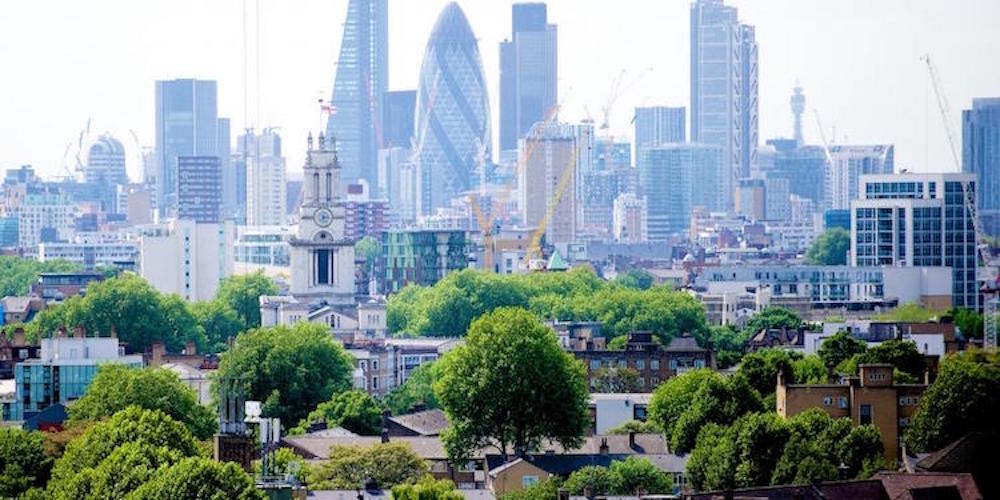Most of London’s businesses are concerned that post-Brexit immigration policies proposed by national government will add to the capital’s skills shortages and have a bad effect on its housing and other infrastructure projects, according to a poll for the London Chamber of Commerce and Industry (LCCI).
A ComRes survey of over 500 London companies found that 57% believe setting a £30,000 salary threshold – disqualifying would-be migrants who don’t have jobs lined up that pay that much – would make it harder for them to find the employees they need, and exactly half believe home building and transport sectors would suffer.
A full two thirds of respondents said the supply of low skilled labour in the capital would be hit particularly badly.
David Frost, the LCCI’s chief executive, said “It’s important that after Brexit the UK’s immigration policy does not make the domestic skills challenge worse,” and highlighted that 60% of London businesses who’ve tried to hire employees in the first half of 2019 have had problems doing so.
Frost, who took up his position earlier this year having served as an adviser to Boris Johnson when he was foreign secretary, added that “indications” that the government has been reconsidering the £30,000 threshold set out in a white paper last year are “encouraging”, but that businesses in the capital will “remain concerned” until a lower level is proposed.
The ComRes poll also found that 63% of London businesses disagreed with the idea that London should have a lower salary threshold than the rest of the UK and that two-thirds of them think any threshold should be at the same level for EU and non-EU migrants.
Barbara Roche, chair of the Migration Matters Trust, said the results showed that the government “needs to listen seriously to the voice of business”, while Julia Onslow-Cole of immigration lawyers Fragomen said the threshold level “needs to be lowered soon” to prevent delays in business investment.
Their comments came ahead of an immigration seminar hosted by the LCCI in partnership with the two organisations. There are reports that Johnson, who will become Prime Minister later today having won the contest to become the new Conservative Party leader, will appoint Frost, an experienced diplomat, as his European Union adviser.
Reacting to the news that Johnson will move into 10 Downing Street, Sean McKee, the LCCI’s director of policy and public affairs, said:
“LCCI worked closely with Boris Johnson, and his business advisory council, during his time as Mayor and found him to have a strong pro-business outlook and a keenness to meet with business people to understand their concerns. Boris knows the vital role that businesses play in creating opportunity and wealth for the residents of this city and country. We will continue to press for the investment and decisions that London needs in order to further drive the UK economy.”
OnLondon.co.uk is dedicated to providing fair and thorough coverage of London’s politics, development and culture. The site depends on donations from readers and is also seeking support from suitable organisations. Read more about that here.


[…] An audience member raised recent remarks by Nicola Sturgeon favouring immigration law being devolved to Scotland and asked if Khan had aspirations of his own in that area for London. He replied by referring to post-referendum LCCI research into possible separate immigration arrangements for London – there was a lot of discussion on the theme back then – and highlighted new City Hall work showing how hard it could be for vital sectors of the capital’s economy to recruit the workers it needs under the government’s immigration plans as they stand. This follows LCCI survey findings that most London businesses are worried that skills shortages are set to increase. […]
Importing more immigrants cut while failing to train our children, our unemployed and our returners immoral. The need is for programmes to provide local access (via schools, community centres, faith groups, libraries networked to FE Colleges, the Open University and others) to training (including apprenticeships) which provides the skills needed and recognised by employers. Where is the publicity for the current objectives and timetables for giving the skills of the present and the future to the Londoners of today. What are the candidates for Mayor and Assembly saying about the policies they will have in their election manifestos.
Encouraging more immigrants while failing to train London’s teenagers, unemployed or returners is immoral. Funding for London’s Further Education system has been passed to the GLA. We need to see local access to the world class skills in current demand with employers via networks of community life-long learning centres (in schools, libraries, community centres etc.) networked to apprenticeship and other training programmes run via our remaining FE Colleges and/or the Open University.